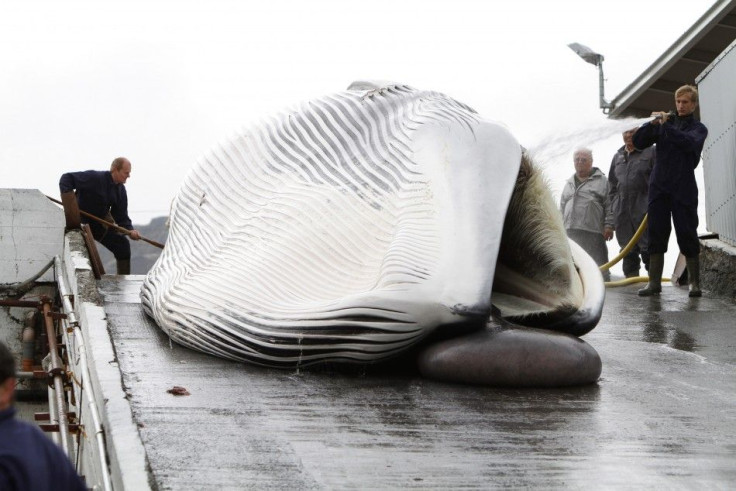Bruno Michel Iksil: White Whale, or Jonah?

Following Thursday's financial earthquake at JPMorgan Chase & Co., in which the financial services company revealed that it faces at least a $2 billion trading loss from derivatives investments gone sour, Bruno Michel Iksil was thrust into the spotlight.
The French trader, who appears to have led these investments from a little-known corner of JP Morgan’s operations in London, recently boasted that he could walk on water -- suggesting that his ego is as outsized as the White Whale nemesis in "Moby Dick." Whether or not Iksil's reputation will go from fearsome sea animal to Jonah after he's blamed for the storm and tossed overboard is not yet known.
JPMorgan CEO Jamie Dimon has said the company will mend its ways, but he has yet to decide who, if anyone, will lose his or her job as punishment for the failure. Despite the bank's staggering loss, Iksil's trading unit has been managing a portfolio that in 2010 brought in $5 billion in profit for America's largest bank.
Iksil is one of three principals in the affair, aside from the CEO himself. Contrary to his self-aggrandizing, others have described Iksil as low-key and lacking in the bluster and bling so often attributed to men and women in high finance. For example, he takes a train to and from work, according to one colleague who spoke to the Financial Times.
And in regard to Iksil being the fall guy for the bad trades -- whatever investments he conducted for the bank, in the end, were done at the behest of his superiors.
Chief Investment Officer Ina Drew, who works in New York and is in charge of the London office that made the problematic trades, is also a player in this debacle. On top of her $750,000 base salary, Drew earned $13.25 million in bonuses last year for a unit that ended 2011 with $356 billion in securities, according to the Financial Times. The other key figure is Iksil's local boss, Greek banker Achilles Macris, who has been increasing risk tolerance ever since Dimon put him in the London office in 2006.
On Thursday night, Dimon said the problem was more systemic than due to the incompetence of one trader, and he added that the so-called Volcker rule, which goes into effect in 2014 and prohibits banks from making speculative bets for their own profit, would not have prevented the practice of proprietary trading (whereby banks invest their own money rather than clients' money) in credit-default swaps.
Dimon is just one member of the cabal of heavy hitters in the banking industry that have expressed displeasure with the Volcker rule and have been pushing for looser rules on proprietary trading. Now, his bank just offered up another case study into why this might not be such a great idea after all.
Iksil's self-comparison to Jesus isn't the first time a scorned banker has had the guts to publicly elevate himself to super-being status; in 2009, Goldman Sachs boss Lloyd Blankfein proclaimed that bankers who help corporations raise capital are doing God's work.
The bank's recent dismal betting skills will certainly reinvigorate calls to reel in what many -- including respected former Fed Chairman Paul Volcker for whom the rule is named -- consider an out-of-control derivatives market, the same market that contributed mightily to the 2007-10 economic meltdown that cost millions of people their homes, jobs and pensions; in other words, not God's work.
© Copyright IBTimes 2025. All rights reserved.






















